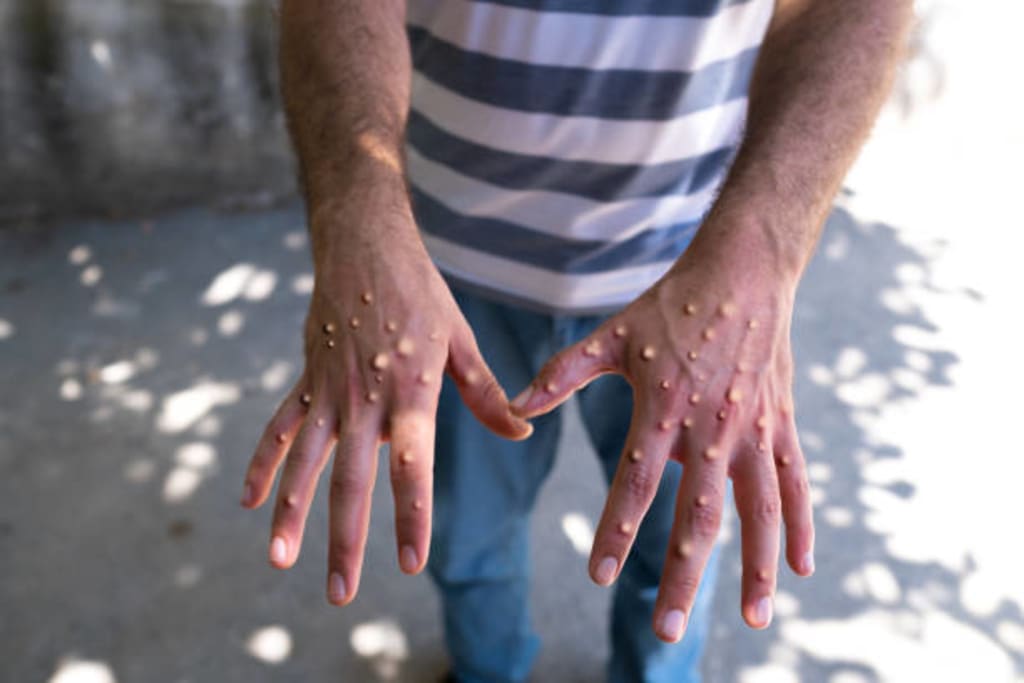Monkeypox (MPox) Virus
The monkeypox virus is an orthopox virus

Monkeypox (MPox) Virus
Introduction
Hello everyone, and welcome to my new Article! Today, we have an important topic to discuss that has been making headlines recently. We're going to dive into the fascinating world of viruses and focus on one specific virus that has been causing concern: the Monkeypox virus. So, let's jump right into it! But before we get into the details, make sure to hit that subscribe button and the notification bell, so you never miss any of our informative videos. And don't forget to leave a comment down below if you have any questions or thoughts on today's topic.
Overview
The monkeypox virus is an orthopox virus that results in mpox, a condition with symptoms comparable to smallpox but less severe. Even though smallpox was eliminated in 1980, mpox still exists in some central and western African nations. Outside of the African continent, instances have also been reported since May 2022 from nations with no history of mpox transmission. The monkeypox virus has been divided into two separate clades: Clade I, formerly known as the Congo Basin (central African) clade, and Clade II, formerly known as the West African clade. Mpox is a zoonosis, a disease spread from animals to humans, and cases are frequently seen near tropical rainforests where the virus-carrying animals can be found. Squirrels, Gambian pouched rats, dormice, many kinds of monkeys, among other animals, have shown signs of monkeypox virus infection. Humans can also contract the sickness from other humans. Contact with bodily fluids, sores on the skin or on internal mucosal surfaces, like those in the mouth or throat, respiratory droplets, and infected objects can all result in the spread of the disease.The preferred laboratory test for mpox is polymerase chain reaction (PCR) viral DNA detection. The best diagnostic samples come straight from the rash and include skin, fluid, crusts, or, in some cases, a biopsy. Methods for detecting antigens and antibodies that do not differentiate amongst orthopox viruses may not be helpful.
Symptoms
Monkeypox symptoms include fever, a broad, recognizable rash, and typically enlarged lymph nodes. It's critical to identify mpox from conditions like chickenpox, measles, bacterial skin infections, scabies, syphilis, and allergies brought on by prescription medications. The mpox incubation period can last between 5 and 21 days. The febrile stage of disease often lasts one to three days and is characterized by symptoms including fever, severe headache, lymphadenopathy, back pain, myalgia, and severe asthenia. The skin eruption stage, which lasts for 2 to 4 weeks after the feverish period, comes next. Macules (lesions with a flat base), papules (raised, painful lesions), vesicles (filled with clear fluid), and pustules (filled with pus) are the various lesion phases. Followed by crusts or scabs. Among cases that have been documented, the percentage of patients who pass away has ranged from 0 to 11% and has been higher among infants and young children.
Treatment
Patients with monkeypox receive supportive care based on their symptoms. Many potential treatments for mpox are being created and put through testing. Raising public awareness and educating healthcare professionals are essential to the prevention and control of mpox. Avoid close contact with sick individuals or contaminated objects. When caring for the ill, whether in a medical facility or at home, gloves and other personal protection gear should be used. Contact with ill or dead animals should be avoided in order to prevent mpox infections caused through primary animal-to-human transmission. Additionally, all foods containing animal meat or components must be thoroughly prepared before consumption the cessation of routine smallpox immunization, which in the past provided some cross-protection, has made populations more vulnerable to mpox. Past studies have demonstrated that the first generation vaccinia virus-based smallpox vaccination is 85% effective at preventing mpox. People who were vaccinated against smallpox as children, including members of the family, the community, medical professionals, and laboratory staff, may still be somewhat protected against mpox. The development of improved and safer vaccines for smallpox over many years of study may also be helpful for mpox. Some nations are advising the immunization of people at risk with one of three mpox vaccines, though supplies are scarce.





Comments
There are no comments for this story
Be the first to respond and start the conversation.